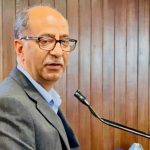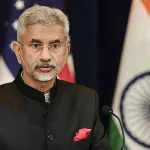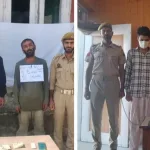In a recent tragic accident in Tengpora, Batamaloo, where Kashmir lost two budding roses and two others were critically injured, is a painful reminder of the urgent need to address traffic regulation issues in the region. This incident has stirred emotions and raised important questions about our collective responsibility as citizens, policymakers, and enforcers of traffic laws. The approach of “No Name, No Blame, No Shame” calls for introspection without finger-pointing, encouraging all stakeholders to focus on actionable solutions rather than assigning fault. This essay delves into the root causes of traffic accidents in Kashmir, the lessons we can learn from such tragedies, and the role civil society must play alongside the state in ensuring safer roads.
Root Cause Analysis: Understanding the Problem
Traffic accidents in Kashmir, including the Tengpora tragedy, are the result of a confluence of factors. Understanding these root causes is crucial to formulating effective and sustainable solutions:
Lack of Traffic Discipline
Many drivers in Kashmir exhibit reckless behavior, such as over-speeding, dangerous overtaking, and neglecting traffic rules. The tendency to ignore speed limits or bypass basic safety protocols like wearing seat belts and helmets exacerbates the risk of accidents.
Inadequate Infrastructure
Narrow roads, poor lighting, and the absence of pedestrian pathways or designated bike lanes contribute significantly to accidents. Road conditions often deteriorate due to a lack of timely maintenance, increasing the chances of mishaps.
Insufficient Enforcement of Traffic Laws
Despite the existence of traffic regulations, their inconsistent enforcement has created a sense of impunity among violators. The fear of penalties or legal action is often not strong enough to deter risky behavior and also there is a need to have further narcotic usage free certificate for application, issuing or renewal of driving license
Inexperienced and Distracted Driving
Young drivers, often unfamiliar with safe driving practices, are particularly prone to accidents. Mobile phone usage while driving, a growing trend, has also emerged as a major distraction leading to fatal consequences.
Overburdened Public Transport and Private Vehicle Surge
The lack of an efficient public transport system forces people to rely on private vehicles, adding to congestion and increasing the likelihood of accidents. Overcrowded mini buses and speeding commercial vehicles further endanger lives.
Absence of a Safety Culture
Road safety awareness in Kashmir is lacking. People, including pedestrians, often disregard basic safety measures like using zebra crossings or waiting for traffic lights.
What We Can Learn from the Tengpora Tragedy
The Tengpora accident is a stark illustration of the cost of ignoring road safety. However, such incidents also highlight opportunities for change. The following lessons can guide us in our efforts to prevent similar tragedies:
Proactive Stakeholder Collaboration
Traffic regulation cannot be the sole responsibility of the authorities. Civil society, educational institutions, and the media must collaborate with traffic regulatory bodies to foster a culture of safety.
Data-Driven Policies
Accidents like Tengpora emphasize the importance of studying crash data to identify accident-prone areas (black spots) and implementing targeted interventions.
Accountability without Blame
A lenient non-punitive approach to analyzing accidents to systemic improvements has not proved effective as Challans and counselling has proved futile and traffic authorities instead of focusing on individual blame should deal with understanding what went wrong at an infrastructural behavioural or enforcement level and that can prove more productive.
Recommendations: Steps towards Safer Roads
Based on insights gained from the Tengpora tragedy and interactions with proactive officers like Mr. Shahnawaz Bukhari, several measures have been already taken to improve traffic regulation in Kashmir. While many initiatives are already underway, the following steps can further strengthen road safety:
Strict Enforcement of Traffic Laws
- Use of Technology: Install speed cameras, surveillance systems, and automatic number plate recognition (ANPR) to monitor and penalize violations.
- On-the-Spot Fines: Empower traffic personnel to impose fines immediately for violations such as over-speeding, wrong parking, and dangerous driving. Enforcing strictly that there is no parking of vehicles on roads on highways which impede smooth traffic movement and/ or narrowing the space for negotiations at places where roads are not wide
Improving Road Infrastructure
- Widening Roads: Address bottlenecks by widening narrow roads in high-traffic areas.
- Better Lighting and Signage: Install high-visibility road signs and ensure proper lighting on all major roads and highways.
- Zebra Crossings and Speed Breakers: Add more pedestrian crossings and speed-calming measures, especially near schools and hospitals.
- Promoting a Safety Culture.
- Awareness Campaigns: Conduct regular road safety campaigns in schools, colleges, and community centers.
- Mandatory Safety Training: Make safety training a prerequisite for obtaining a driving license.
- Media Advocacy: Use print, digital, and social media to propagate the importance of following traffic rules.
Enhancing Public Transport
- Modernization of Fleet: Upgrade public transport vehicles to ensure safety and reliability.
- Regulating Commercial Drivers: Impose stringent regulations on commercial vehicle operators, including periodic safety checks and speed monitoring.
Community Involvement
- Civil Society Role: Encourage local NGOs and community leaders to organize road safety workshops.
- Volunteering Initiatives: Create volunteer groups to assist traffic police during peak hours.
Strengthening Legal Frameworks
- Higher Penalties for Violations: Introduce stringent penalties for traffic violations to deter unsafe practices.
- Prosecution of Repeat Offenders: Maintain a record of habitual violators and take stricter legal action against them.
Emergency Response Preparedness
- Improved Ambulance Services: Ensure well-equipped ambulances with trained paramedics are readily available at accident-prone locations.
- Quick Response Teams: Deploy rapid response teams for immediate assistance in case of accidents.
Sustainable Urban Planning
- Decongesting Cities: Develop ring roads and bypasses to divert heavy traffic away from city centers.
- Smart Traffic Management: Use intelligent traffic systems to optimize signal timings and reduce congestion.
The Role of Civil Society: Doing Our Part
While state authorities and traffic regulatory bodies have significant roles, the responsibility of ensuring road safety does not rest solely on them. Civil society must rise to the occasion:
Lead by Example
Every individual can contribute by adhering to traffic rules, using public transport where feasible, and advocating for road safety.
Role of Pulpit and religious clerics
Religious clerics play a pivotal role in shaping societal norms and raising awareness on critical issues, including the education and disciplining of children. Their influence, rooted in spiritual guidance and moral authority, can inspire parents and teachers to fulfill their responsibilities towards nurturing a disciplined and well-rounded generation.
Recently, esteemed figures like Mirwaiz Umar Farooq have highlighted the importance of this issue during their Friday sermons and Mufti Azam Mufti Nasir-ul-Islam issuing public statements. By addressing these matters from the pulpit, they emphasize the need for parents to adopt balanced approaches to discipline, avoiding harshness while instilling values of respect, responsibility, and compassion in children. Teachers, too, are reminded of their sacred duty to guide students with care and patience, fostering both academic excellence and moral character.
Other religious leaders should follow suit, leveraging their sermons to tackle sensitive topics that impact families and society. Discussing the consequences of neglecting proper discipline, they can encourage parents and educators to align their methods with Islamic principles of justice, mercy and wisdom. Such discourse can serve as a catalyst for communities to adopt positive changes; ensuring children grow up in environments that promote both love and structure. Using the pulpit to address these challenges not only reinforces traditional values but also equips society to better navigate the complexities of modern parenting and education.
Support Government Initiatives
- Collaborating with authorities, rather than criticizing them, can create a more constructive environment for change.
- Raise Awareness.
- Actively participate in and promote road safety campaigns to build a safety-conscious community.
A Message of Hope: Building Safer Roads Together
In the aftermath of the Tengpora tragedy, it is heartening to see that many measures are already being implemented by proactive officers like Mr. Shahnawaz Bukhari. However, there is always room for improvement. The essence of the “No Name, No Blame, No Shame” philosophy is that everyone has a role to play, and by working together, we can create a safer Kashmir.
Instead of viewing road safety as a task for authorities alone, let us embrace collective responsibility. Civil society must complement government efforts by promoting awareness, setting examples, and providing constructive feedback. Similarly, authorities must continue their efforts to enhance enforcement, infrastructure, and public transport. With shared commitment and determination, we can prevent tragedies like Tengpora and make Kashmir’s roads safer for everyone.
The Tengpora accident is a heartbreaking reminder of the consequences of neglecting road safety. However, it also serves as a call to action for all stakeholders to work together towards a better future. By addressing root causes, implementing practical recommendations, and fostering a culture of shared responsibility, we can ensure that such tragedies become a thing of the past. Together, as a society, we can build a road system that prioritizes safety, efficiency, and the well-being of every individual.
(Author besides being a Medical doctor at Mubarak hospital is a Member OF GCC- Group of Concerned Citizens, a policy analyst active in positive perception management of various moral and social issues and can be reached at: [email protected])








